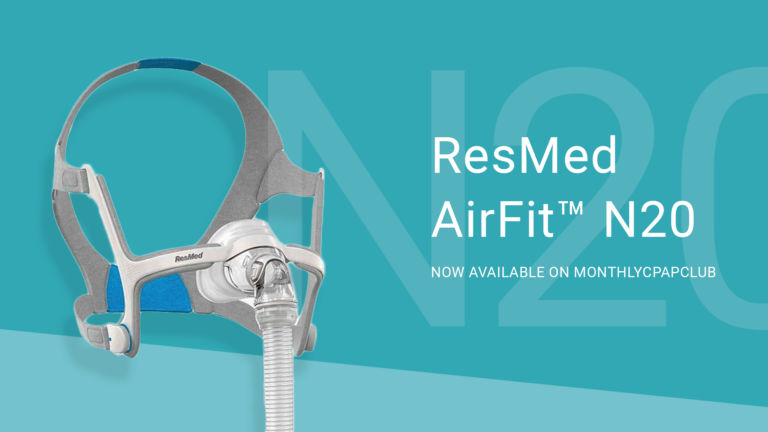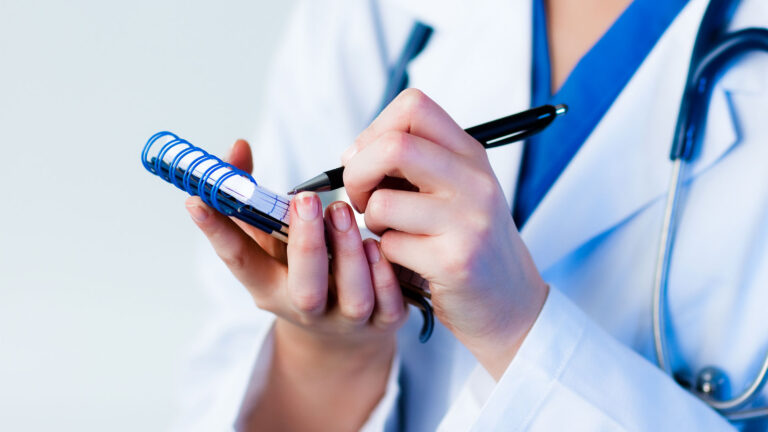Have You Been Recommended a Sleep Study?
Read This First.
Sleep Study Overview
More than 18 million Americans have been diagnosed with sleep apnea, which is a sleep disorder characterized by airway blockage that leads to frequent disruptions of sleep. Because the symptoms mostly present during sleep, those who suffer from the condition rarely recognize it by themselves. This is why sleep doctors recommend polysomnography.
Polysomnography is the official term for a sleep study, which monitors brain and body activity during sleep to help diagnose sleep disorders like sleep apnea. Your brain waves, oxygen levels in your blood, breathing and heart rate patterns, limb flexing and extensions and body positions are all recorded. Results can help identify previously unknown sleep disorders, and they can help those with known disorders adjust their treatment moving forward.
Understanding Sleep Studies
Most sleep studies are conducted at either a sleep center or at the sleep disorders unit of a hospital, but they can also be done at the patient’s home. Diagnostic overnight polysomnography (PSG) tests are conducted overnight with a diagnostic daytime multiple sleep latency test (MSLT) completed the morning after to test daytime drowsiness and signs of narcolepsy. There are also multi-day tests where PSG technologists have the patient use a CPAP machine for improved sleep quality.
The purpose of a sleep study is to help diagnose any sleep disorders so patients can start treatment as soon as possible. During normal sleep, your brain activity and eye movements slow down for one to two hours in a stage called non-rapid eye movement (NREM) sleep. They then resume during rapid eye movement (REM) sleep, and you may experience dreaming. A full night’s rest includes multiple 90-minute cycles of NREM and REM sleep, but there will be several interruptions if you have a sleep disorder. Sleep studies identify when, why and how often you sleep is disrupted so your doctor can accurately diagnose you.
If you’re experiencing any of the following, your doctor will likely recommend a sleep study:
- You wake up gasping or choking during the night.
- You exhibit signs of periodic limb movement disorder or restless legs syndrome.
- You are overwhelmingly exhausted or fall asleep at random during the day.
- Your sleep behaviors include walking, talking or acting out dreams.
- You have trouble falling asleep or staying asleep.
Sleep studies are easy—there’s no cause for concern! Here’s what you can expect.
How It Works
CPAP SUPPLIES
Each delivery contains all the CPAP supplies you’ll need for the next month, quarter or year.
AUTOMATIC DELIVERY
Scheduled deliveries remind you when it’s time to change your filters, padding and mask.
CANCEL ANYTIME
Total control over your membership. Cancel at any time, no commitment.
How It Works
CPAP SUPPLIES
Each delivery contains all the CPAP supplies you’ll need for the next month, quarter or year.
AUTOMATIC DELIVERY
Scheduled deliveries remind you when it’s time to change your filters, padding and mask.
CANCEL ANYTIME
Total control over your membership.
You can cancel at any time, no commitment.
Before Polysomnography
Polysomnography is straightforward and risk-free. If you have sensitive skin, you may experience some irritation from the mild adhesive used to attach sensors to your body. Otherwise, the process is noninvasive.
You will be asked to abstain from foods and beverages that have alcohol and caffeine in them, as both substances affect your sleep patterns and can make some sleep disorder symptoms worse. Taking a nap on the day of your study will also impact your sleep, so try to avoid doing so. It’s important to get the most accurate study results for truly personalized treatment.
On the evening of your study, you will arrive at the sleep center or sleep disorders unit with your night clothes and other items that are part of your bedtime routine. The study room will be nearly indistinguishable from a hotel room with a private bathroom. It’s simply equipped with a low-light video camera and a two-way audio system so the PSG technologists can monitor the room and communicate with you.
The techs will use a mild adhesive to attach sensors to multiple points of your body once you’re ready to go to sleep. Each sensor is connected to a computer with a long wire—there will be enough room to move during sleep. You’ll also have a sensor clipped to your finger or ear for monitoring blood oxygen levels.
Before Polysomnography
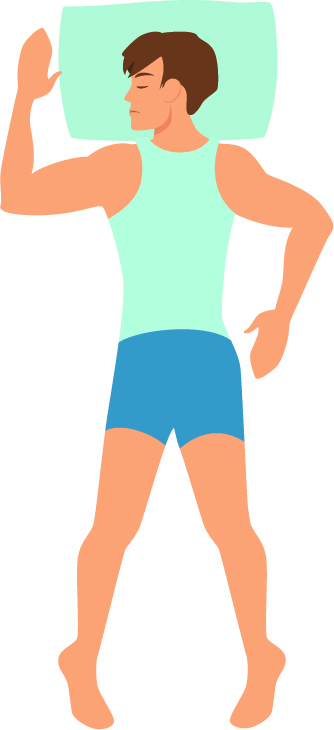
Polysomnography is straightforward and risk-free. If you have sensitive skin, you may experience some irritation from the mild adhesive used to attach sensors to your body. Otherwise, the process is noninvasive.
You will be asked to abstain from foods and beverages that have alcohol and caffeine in them, as both substances affect your sleep patterns and can make some sleep disorder symptoms worse. Taking a nap on the day of your study will also impact your sleep, so try to avoid doing so. It’s important to get the most accurate study results for truly personalized treatment.
On the evening of your study, you will arrive at the sleep center or sleep disorders unit with your night clothes and other items that are part of your bedtime routine. The study room will be nearly indistinguishable from a hotel room with a private bathroom. It’s simply equipped with a low-light video camera and a two-way audio system so the PSG technologists can monitor the room and communicate with you.
The techs will use a mild adhesive to attach sensors to multiple points of your body once you’re ready to go to sleep. Each sensor is connected to a computer with a long wire—there will be enough room to move during sleep. You’ll also have a sensor clipped to your finger or ear for monitoring blood oxygen levels.
During the Sleep Study
All you have to do during the sleep study is sleep! There is nothing special to it. Try to sleep as you would at home so the techs can get accurate results to pass on to your doctor. You may find it difficult to sleep while attached to multiple wires, but this is to be expected.
While you’re sleeping, the polysomnography team will be monitoring the following:
- Brain waves
- Eye movements
- Heart rate (and any changes)
- Breathing patterns (and any changes)
- Blood oxygen levels
- Body position and movement
- Limb movement
- Signs of sleep apnea
There’s a chance the sleep specialists will bring in a CPAP (continuous positive airway pressure) machine for you to use during the study. This is an easy-to-use machine that delivers filtered pressurized air directly to your airway via tubing and a CPAP mask, and it can help restore restful sleep caused by disrupted breathing patterns.

During the Sleep Study

All you have to do during the sleep study is sleep! There is nothing special to it. Try to sleep as you would at home so the techs can get accurate results to pass on to your doctor. You may find it difficult to sleep while attached to multiple wires, but this is to be expected.
While you’re sleeping, the polysomnography team will be monitoring the following:
- Brain waves
- Eye movements
- Heart rate (and any changes)
- Breathing patterns (and any changes)
- Blood oxygen levels
- Body position and movement
- Limb movement
- Signs of sleep apnea
There’s a chance the sleep specialists will bring in a CPAP (continuous positive airway pressure) machine for you to use during the study. This is an easy-to-use machine that delivers filtered pressurized air directly to your airway via tubing and a CPAP mask, and it can help restore restful sleep caused by disrupted breathing patterns.
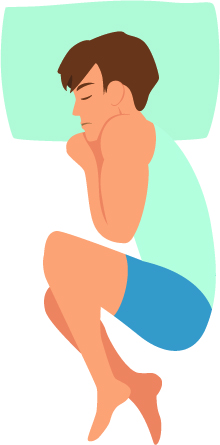
After Polysomnography
Once you’ve completed the sleep study, you’ll book a follow-up appointment with your doctor and resume your typical routine. You are not required to make any changes until prescribed by your doctor.
The follow-up appointment will include a review of your polysomnography results and recommended treatment in the event you have a sleep disorder. The most common of these is sleep apnea, which is treated with CPAP therapy.
After Polysomnography

Once you’ve completed the sleep study, you’ll book a follow-up appointment with your doctor and resume your typical routine. You are not required to make any changes until prescribed by your doctor.
The follow-up appointment will include a review of your polysomnography results and recommended treatment in the event you have a sleep disorder. The most common of these is sleep apnea, which is treated with CPAP therapy.
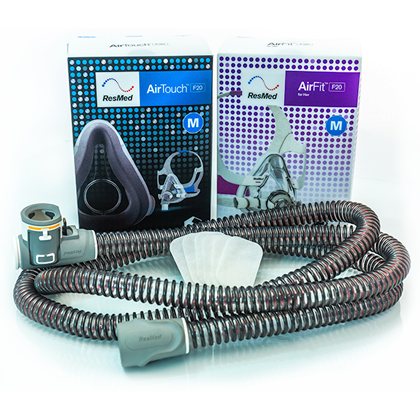
Getting Started with CPAP Therapy
Getting started is easy. Just click the button below. Choose your supplies, customize your plan and we’ll send your CPAP supplies straight to you! So take a load off and leave the rest to us!
Monthly CPAP Club Recent News
New Monthly CPAP Club N20 Airfit Mask Fit at Home Guide
Do you need Rx for MonthlyCPAPClub?
F.A.Q.
Monthly CPAP Club is a new approach to delivering a regular and scheduled shipment of all your CPAP supplies for one low monthly cost. We work with the major manufacturers to provide a selection of the most popular CPAP masks, cushions, tubing, filters and other accessories.
Every package allows you to choose your preferred style of CPAP mask and the brand, make and model you prefer. You have the choice of standard tubing or heated tubing. You have the option for extended tubing options with heated tubing. Every package also includes cushions for the mask and filters for your machine
We need to know which CPAP breathing machine you use so we can send you the correct filters. Filters are specific to machines. If you don’t see your CPAP breathing machine model listed, please contact us at sales@monthlycpapclub.com. Please include the make and model of CPAP breathing machine you use. We do support many machines. The most popular machines are listed right now and more will be added as we grow. In the mean time, let us know which machines you use so we get you the correct filters.
Monthly CPAP Club currently offers Resmed, Respironics, and Fisher & Paykel CPAP products. We can accommodate certain other brands when requested by email. Please let us know by emailing us at sales@monthlycpapclub.com or submit a request online.
Our goal at Monthly CPAP Club is to offer all the necessary CPAP supplies for good sleep hygiene in simple, scheduled quarterly shipments. We want the program to be even easier for the end user to afford with a monthly payment. When you sign up for a package with Monthly CPAP Club, you will be charged the monthly package amount ranging from $33 and up depending on your preferences.
We will ship out a package within 1 business day of your order with all the CPAP supplies you’ll need to properly treat your sleep apnea with clean and effective supplies. The next scheduled shipment for your account
The best part about Monthly CPAP Club for those living with sleep apnea is that CPAP supplies are one less thing you’ll have to regularly order, schedule or pick up. We ship you the supplies you’ll need for the next three months and ship you another package in three months will all new and fresh CPAP supplies.
Yes, we offer single shipment pricing here.
We do sell most of the popular and newest CPAP machines. Although we do not list many of the machines on our Monthly CPAP Club site, we can process orders for machines via email for existing subscribers and over the phone for new users.


